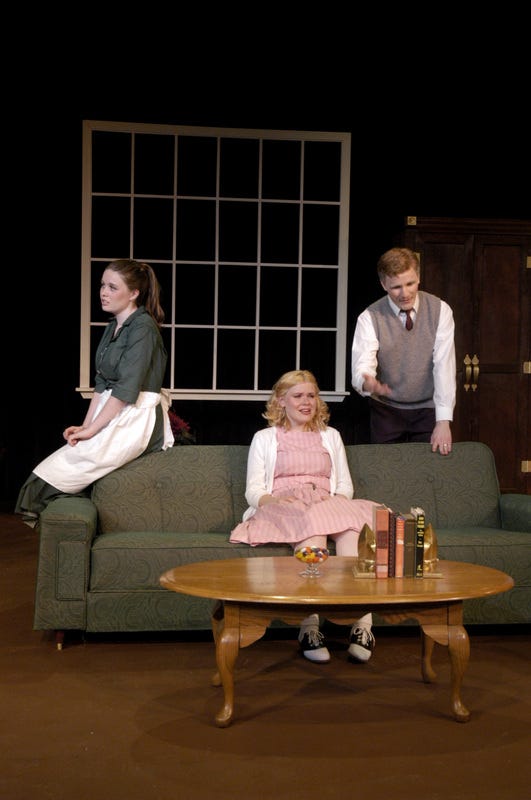We Won't Be Coming Back...Ever?
"Why don’t you come back on a day when he is a little more regulated?"
Welcome to Firelight! In case you’re new here, I write about living intentionally and prayerfully alongside my husband and two sons, the older of whom has non-speaking autism. In this edition, I write about the necessity of hope amid challenges.
“The world is run by worn-out people, and our soul is often lost beneath the piles of our everyday life.” —Emily P. Freeman in The Next Right Thing
The other day, I watched my husband stir a nutritional supplement into a glass of orange juice. He handed the juice to our non-speaking autistic son. Milo carefully accepted the glass. Then, in a blink-and-you’ll miss it moment, Milo glanced at my husband. Gingerly, he grasped the straw and began to stir the juice.
“Did you see that?” I whispered to my husband. Of course he’d seen it, but speaking it out loud made it real. “He saw you stirring the juice and he, he…he copied you.”
One of many reasons we haven’t had great success in teaching Milo to mimic language is that Milo has trouble mimicking anyone doing anything. When Milo was a preschooler, I was told by his therapists to start small. I should clap my hands and then tell Milo it was his turn to clap. Mimicry is the first step. These repetitions, in time, might lead to language acquisition. Dutifully, I would clap and instruct Milo to do the same. He would stare at me. I’d do it again. Then: “Your turn. Clap, Milo.” He would furrow his brow. Finally, I’d take Milo’s hands in mine and manually clap his hands for him. He’d push me away. If I kept trying, he’d run away screaming. On especially terrible days, he’d self-harm. If we had plans later that day, I often needed to cancel those plans.
“I don’t know what to do,” I’d tell his therapists. “He gets upset so easily.”
The therapist’s mouth would form a thin, straight line—and I could read her mind. Mama needs to cut the apron strings. The therapist would then say things like, “Well, consistency is important. You’re going to get out what you put in.” I’d nod and decide that the problem was me. I wasn’t trying hard enough. I wasn’t strict enough. It felt like I was in school again and I’d just been handed a poor grade. I remembered the paper I got back from my favorite professor in college: “You started out strong but ended up losing steam. B-minus.” Now, my parenting skills were getting marked with red ink.
A few weeks ago, I did battle with an ENT just to get my son’s ears examined. Did you know that it is extremely difficult—often impossible—to get routine medical care for non-speaking autistic children? Often, my son can’t control his own body. On top of that, he has mixed receptive-expressive language disorder—his brain has difficulty processing spoken words. “Have a seat, Milo” may as well be “Afghajhjaldheakljdea.” When someone tries to stick a light in his ears, he reacts instinctively and begins fighting them off. He responds as any sane human being would respond if poked and prodded in such a manner. The medical community isn’t trained on how to provide care for children like my son. As a result, my son often doesn’t receive medical care when he most needs it.
“I’m sorry, but I can’t get a good look. Why don’t you come back on a day when he is a little more regulated? Just call the front desk when you’re ready.”
Well, this is everyday. So, I guess we won’t be coming back…ever?
You started out strong, Heather, but now you’re losing steam. B-minus.
I missed most of the last church service we attended because Milo couldn’t self-regulate. He was doing well until he ran out of dried fruit and then he started shouting. I tried to hand him a package of crackers, but he didn’t want them and angrily stuffed them inside his backpack.
“He’s done!” a lady behind us chuckled.
I nodded and offered up a weak smile.
You started out strong, Heather, but now you’re losing steam. B-minus.
My favorite professor was right. I was losing steam. That semester, I was juggling a full load of classes and a big part in a school play. For weeks, I cried myself to sleep—a dog-eared copy of Molière’s Tartuffe splayed across my chest. I was unable to picture a future in which I knew all my lines. I didn’t actually believe I was capable of it. Still, I kept working on my scenes—a few lines in the cafeteria, a few more lines walking to class, still more lines before bed. By the grace of God, I learned them all.
It’s been nearly twenty years, but I’m still proud of the performance I turned in as Dorine. Twenty years from now, I hope I’m proud of the lines I’m learning now.
Do you have a story about a time when you surprised yourself with your own fortitude? (I hope Elizabeth Harwell won’t mind if I borrow her practice of wrapping a post with a question for the reader.) Please like, comment, and share if you enjoyed this post. Thank you for reading!






this is lovely. <3. your fortitude with your son encourages me, and this is a lovely post in general
I love all the vulnerable, detailed snapshots, the real and relatable heartache you so generously share. Each one offers the turning towards hope. Such models are so beautiful and so needed.